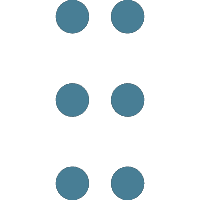GeoTechathon: potential of LLMs
.png) |
Introduction |
Over the past decade, there has been a surge of interest in applying machine learning to geotechnical engineering problems, motivated by the promising potential of data-driven methodologies to enhance performance across diverse scientific and engineering disciplines. However, despite the increasing availability of openly accessible databases in geotechnical engineering, numerical data in this field is often incomplete and contains various sources of uncertainty, making it challenging to exploit modern machine learning technologies. On the other hand, geotechnical site investigations typically include records of photos and text reports. Large Language Models (LLMs) excel in their ability to understand and generate human-like text, allowing them to efficiently extract information from data that are not compatible with conventional machine learning models. In light of this opportunity, we are excited to announce an upcoming international hackathon focused on the innovative application of LLMs to solve complex problems in geotechnical engineering.
Unlike conventional models that may require structured and numerical input, LLMs can handle unstructured data, capturing nuances and dependencies often missed by other algorithms. Recent advancements in LLMs, including extensions to handle multimodal data and agent-based LLM systems for building diverse applications, have made this technology suitable for solving practical problems in the real world. In this hackathon event, participants will be introduced to the latest LLM technologies through a series of free tutorials and then explore different directions to apply LLMs to problems in four major topics in geotechnical engineering: 3D geological modeling, landslide analysis, laboratory testing for liquefaction analysis, and rock tunnel stability evaluation.
 |
Topic description |
 |
Group 1: 3D geological modeling |
Leader: Chao Shi (Nanyang Technological University)
Geological modelling has been traditionally relying on engineers’ personal judgement to determine 2D stratigraphic boundaries and model stratigraphic distributions in 3D geological domains. However, geological information typically exists in various forms, such as text, images, and videos, which have not been unified and effectively leveraged for ensemble learning of 2D & 3D subsurface geological models. The emerging LLMs provide a handy tool to encode / align multimodal input data for efficient text mining, data analysis, and prediction modelling. Therefore, this topic aims to leverage LLMs to solve one or more of the following geotechnical challenges: data mining and digitalization of unstructured multimodality data, construction of domain-specific training image database for geological modelling, and 2D & 3D stratigraphic modelling and uncertainty quantification.
 |
Group 2: landslide analysis |
Leader: Andy Leung (The Hong Kong Polytechnic University)
Group 2 aims to establish a LLM framework to assist preliminary (quick) analyses of landslides (or pre-failure assessment), which can be refined by engineering experience/knowledge. To assess slope stability or investigate the causes of landslide occurrence, it is often necessary to compile and analyze large volumes of data in various forms and from various sources. The goal of this group is to develop LLM-based assistants to extract, label and filter relevant information in a systematic way that would assist engineering analyses of professionals.
 |
Group 3: laboratory testing for liquefaction analysis |
Leader: Chisato Konishi (OYO Corporation)
Group 3 aims to develop an AI application to support the tuning of soil parameters for liquefaction analysis based on lab test results and suggest necessary tests for enhancing this analysis. Liquefaction analysis often requires numerical simulations using soil parameters from both laboratory and in-situ tests, which need to be planned appropriately based on local conditions and soil quality. This process demands experienced engineers' knowledge. Incorporating their expertise into a knowledge base for an LLM-based AI assistant can help even beginners create accurate lab test plans.
Furthermore, using software like LIQCA and FLIP for liquefaction simulations requires over ten soil parameters, necessitating high expertise for parameter setting and result evaluation. Due to the high cost and infrequent performance of cyclic loading undrained triaxial tests, verbalizing expert knowledge on sample collection, test execution, and result evaluation can aid non-experts in tuning simulation parameters using an AI assistant. The system can quickly generate simulated lab test results, which serve as training data for the AI, ultimately aiming to automate parameter determination for liquefaction simulations.
 |
Group 4: rock tunnel stability evaluation |
Leader: Mingliang Zhou (Tongji University)
The mission is to develop and implement an advanced evaluation bot designed to enhance on-site stability assessments during the New Austrian Tunneling Method (NATM) construction cycle. By leveraging the multimodal data handling capabilities of a large language model (LLM) focused on rock tunnel stability evaluation, our goal is to create a robust platform that facilitates knowledge exchange and extraction between the bot and engineers on site. This tool aims to provide real-time insights and support, ensuring safe and efficient tunneling operations through accurate stability evaluations and expert guidance.
.png) |
Requirements |
(1) Senior researchers and engineers will be paired with junior participants to form groups that focus on one of the four topics. Each group will have two to three months to develop an LLM-based product that addresses a practical geotechnical problem.
(2) Each group will submit an abstract (it will not be formally published) through the conference website https://www.fomlig2024.com/ and a presentation file that summarizes the obtained results. Please download the abstract template here.
(3) The results will be presented at the 2FOMLIG in Oct. 12, 2024 and/or considered for academic publication in a Georisk special issue following the joint workshop.
 |
Important dates |
| July 15, 2024 | | | Interested applicants should submit the participation form by July 15, 2024 |
| August 31, 2024 | | | Submission of abstract |
| Early October | | | Submission of presentation file |
| October 12, 2024 (Afternoon) | | | GeoTechathon |
 |
Organization Committee |
| Stephen Wu | | | Chair, The Institute of Statistical Mathematics |
| Andy Leung | | | The Hong Kong Polytechnic University |
| Chao Shi | | | Nanyang Technological University |
| Yuanqin Tao | | | Secretary, Zhejiang University of Technology |
If you have any questions, please contact Dr. Yuanqin Tao (taoyuanqin@zju.edu.cn).
Please download the GeoTechathon - Participation form here.